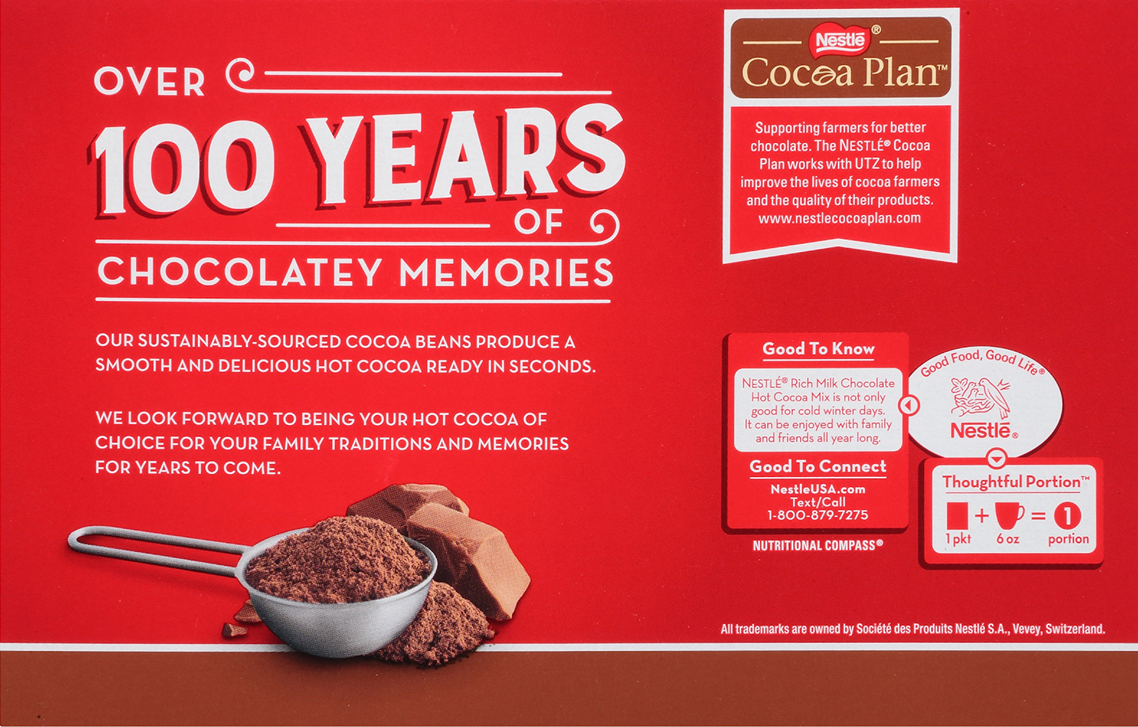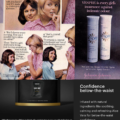 The health and diet food market has a long history of selling us misinformative and fear-mongering slogans to get us to buy their products. It tells us what foods are “detoxifying” versus “poisonous,” what is a “guilty pleasure,” and what is “innocent.” Of course, all foods vary in nutritional value, and there are certainly foods that have more health benefits for us than others, but there is an inherent problem with the moralizing language surrounding health food marketing that runs rampant in our supermarkets.
The health and diet food market has a long history of selling us misinformative and fear-mongering slogans to get us to buy their products. It tells us what foods are “detoxifying” versus “poisonous,” what is a “guilty pleasure,” and what is “innocent.” Of course, all foods vary in nutritional value, and there are certainly foods that have more health benefits for us than others, but there is an inherent problem with the moralizing language surrounding health food marketing that runs rampant in our supermarkets.

Advertisers may use words like “clean,” “natural,” or “innocent” to draw consumers in with the promise that these foods will make them healthier, less susceptible to common health issues, or more fit or desirable. These foods may be labeled this way to reflect a lower calorie content per serving, less fat, less ingredients, more protein, or any other quality that may be appealing to health-conscious potential buyers at the time. But, advertisers are not concerned about consumers’ health goals. They are out for profit, and they know that fear and desire sell best. In a society with near impossible beauty standards (for any/all genders), it is not difficult to prey on people’s want for a quick-fix option to change their lifestyle, or to tell them that what they are currently buying and eating is harmful and will make them less healthy or less desirable. These messages can be especially harmful to those who are in a vulnerable headspace due to these standards, but unfortunately, this group is also hugely profitable because of this, and companies are aware of it. They want vulnerable consumers, because they are the easiest to keep hold of, the ones most likely to keep buying their products. Giving worried and self conscious people the reassurance they crave that the foods they are buying the right ones, will keep them coming back.
Our food choices should not be cause for moral dilemma (at least in the realm of nutrition). Though it is extremely important that we consume the nutrients necessary to keep us healthy and well fed, the labelling of foods as variations on “good” and “bad” simply feeds into a culture of restriction and fear, and perpetuates our already toxic standards of beauty and fitness. We should allow ourselves to enjoy food, without needing reassurance from a company that has not our best interests in mind, but rather, our wallets. As tempting as it may be to fall into the false security that “guiltless” foods may give us, we have to remember that this marketing strategy is simply another creative tactic to prey on our insecurities and fears.








A lot of ‘healthy’ buzz words mentioned can be misleading and often have no actual value. Companies utilize specific words and colors in order to intentionally drive consumers to purchase its product. Another tactic that companies will utilize is the direct manipulation of information. They may manipulate or omit information on labels or websites so that the product may seem more desirable. Guilt-free marketing can be extremely harmful as it can perpetuate problematic thinking already present in society.
I thought it was interesting how you mentioned that the words we use are so important in terms of making something sound more “healthy” and “beneficial” versus something that’s “unhealthy” and “bad” for our bodies. The use of vocabulary really makes a difference in making certain things sound better compared to others. I also sometimes find myself gravitating more towards “healthier” items like Halo Top because they always label their ice-creams as having fewer calories compared to other brands of ice cream like Haagen-Dazs and Ben & Jerry’s. However, I have learned first-hand what terrible effects this kind of searching/thinking has on a person’s psyche and how restrictive it feels on oneself. While the experience was not something I enjoyed, I did gain a lot of perspective on what works for my body and what doesn’t. In that sense, I think it is important for us to focus less on the labels and more on what foods our body needs/makes it feel better. Because our food shouldn’t be our poison; it should be our strength.
I agree that so many foods these days are labeled as a way to draw people into buying their “healthier” option for what ever food it may be. In a way it gives into making people think that they should buy this healthier option because then they won’t feel bad about enjoying their food that they’re eating. This continues to contribute to peoples mindsets about themselves.